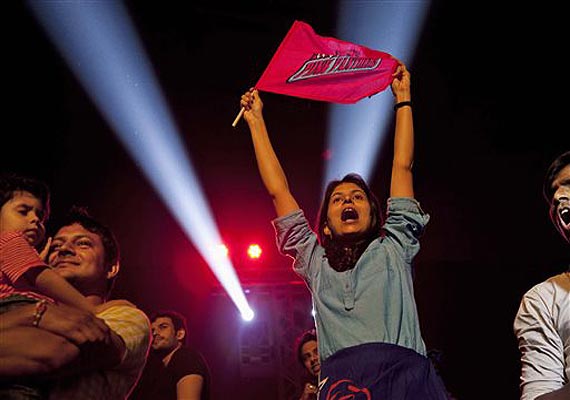
For the players, it's an entry into another world. Many are from rural villages, where kabaddi has its strongest following. Overnight, these players have gone from small competitions in community centers to being national TV stars.
"Everything has changed, I never thought that this would happen to me," said Rishank Devadiga, 22, who until recently worked in a hotel and now plays for Mumbai's UMumba team. "I come out of my house, people say `This is Rishank Devadiga!' They come to me, take photos."
Devadiga was paid 520,000 rupees or $8,400 for the month, almost double his annual salary. Many players are paid more. The demands of the big time have already had an effect on the sport. To make the game more TV-friendly, attacks have been limited to 30 seconds. Since your average professional can say "kabaddi" for a minute, the game's titular rule has been somewhat diluted.
Instead, "kabaddi, kabaddi, kabaddi" plays deafeningly from speakers during attacks, followed by "Yes, kabaddi? No, kabaddi" as the clock runs down.
Fans don't seem to mind. "We used to play this game in our childhood," said Deepteesh D. Singh, 27, after watching his team, Jaipur, win. "And it has come to this level. It's great."



















